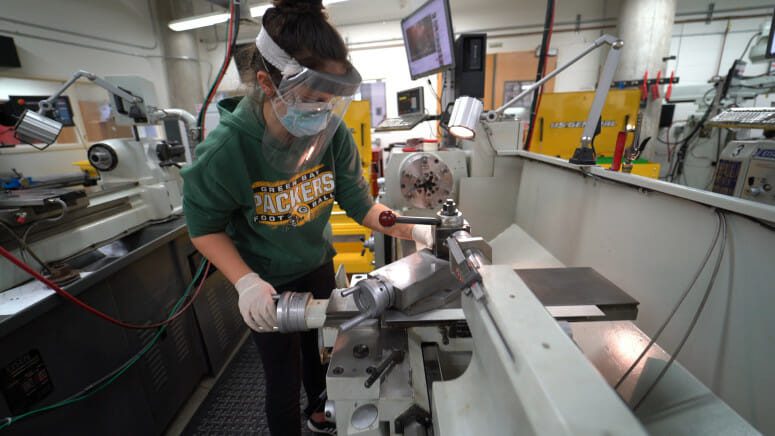17 Mar UW-Madison engineering talent critical to state, national economic progress

The College of Engineering’s rigorous curriculum helps students become innovative problem-solvers, while hands-on design and capstone courses allow them to apply their engineering training to real challenges UW-MADISON COLLEGE OF ENGINEERING
Many of Wisconsin’s most notable companies have grown from family businesses founded decades ago into multibillion-dollar companies with an international reach — and engineers drive the innovations that underlie their progress, global competitiveness and economic success.
“Engineers are a multiplier in the workforce,” says Todd Kelsey (BSEE ’87, MSEE ’89), CEO of Plexus, a global company specializing in highly complex design, manufacturing, supply chain and aftermarket services based in Neenah, Wisconsin. “They create things, and by creating things, they create jobs. Engineering is critical to make our economy grow.”
Beyond manufactured goods, engineers also play a major role in virtually every aspect of our daily lives. They design our transportation systems, buildings, water supplies, and energy infrastructure. They enable all aspects of our digital infrastructure, from smartphones to advanced wireless networks to the cloud — and they create systems to keep our data secure. In healthcare, engineers pioneer solutions for diagnosing and treating disease or improving the way in which patients receive care. And they create new materials that enable progress in these applications, and countless others.
University of Wisconsin–Madison engineers are critical to all of these efforts, says Ian Robertson, Grainger Dean of the College of Engineering. “When you think of the grand challenges the state of Wisconsin, the nation, and our society are facing — clean energy, clean water, next-generation transportation, cybersecurity, healthcare and many more — our students and our faculty are working in all of those areas,” he says.
“Every company I meet with in Wisconsin tells me, ‘We want more Badger engineers.’”
– Ian Robertson



